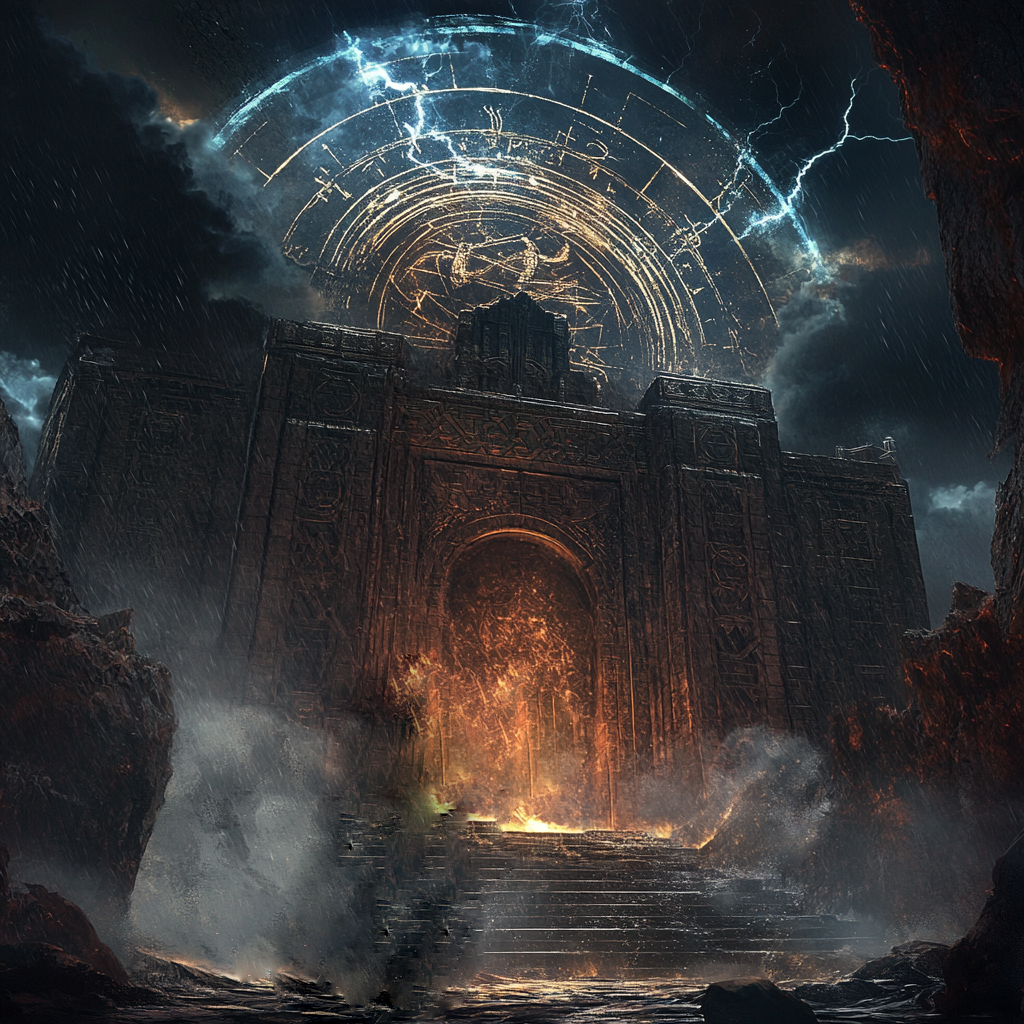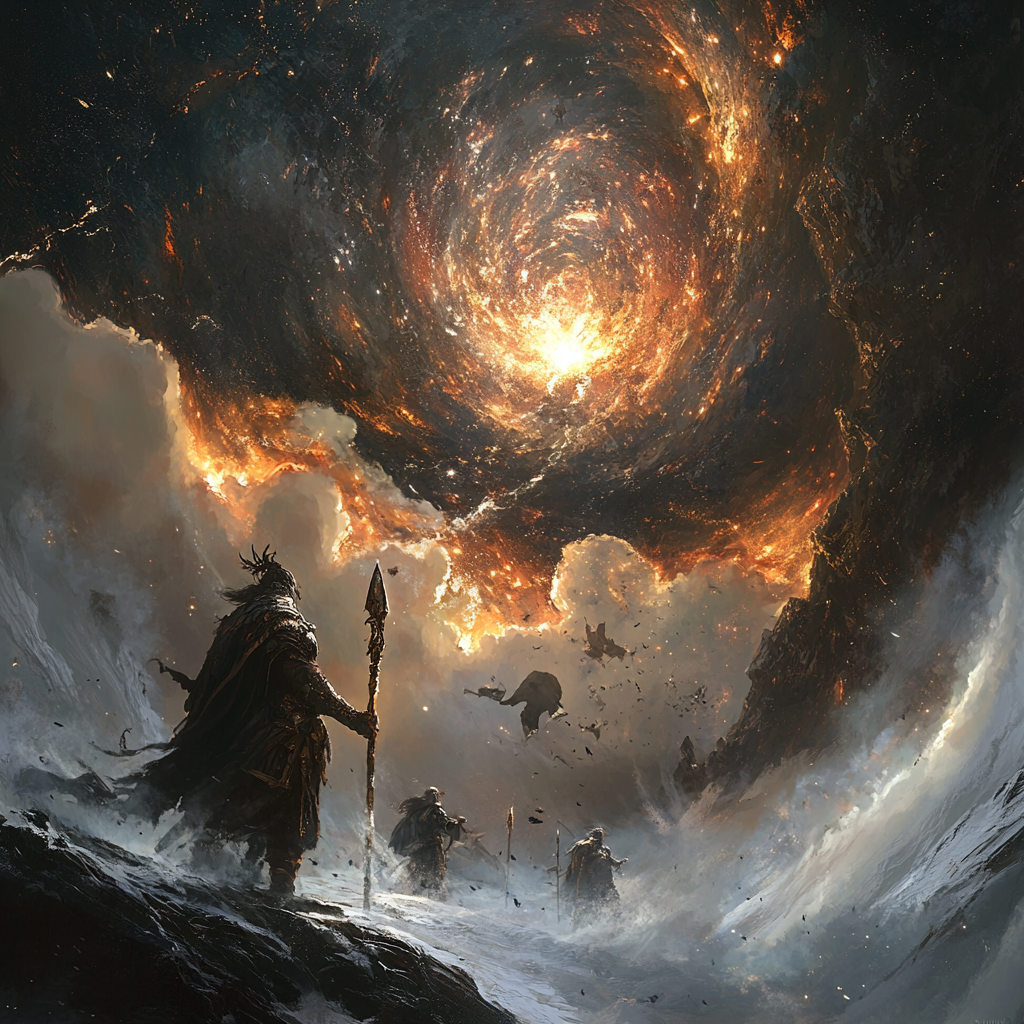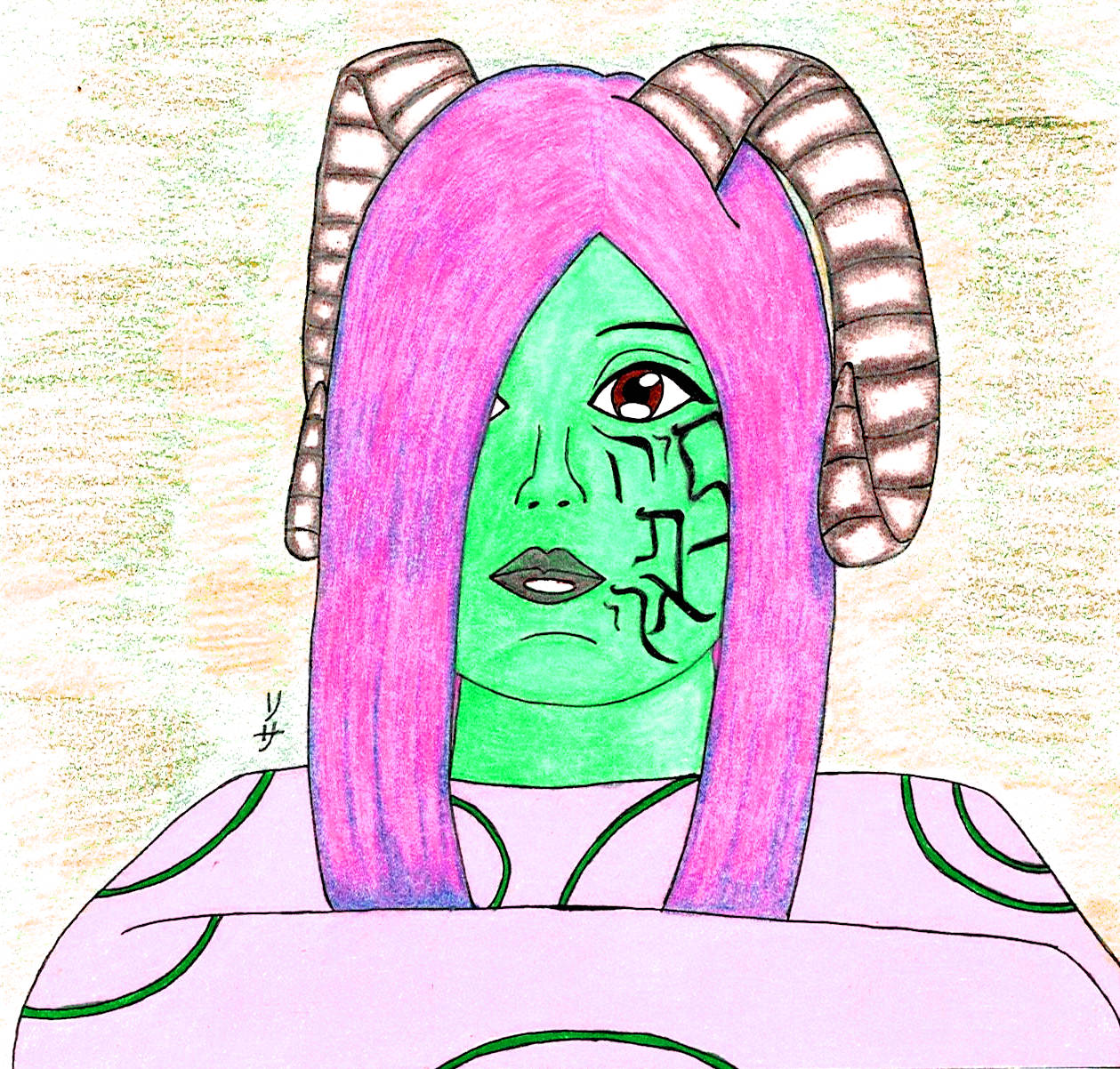Fall of the Elder Gods
All know that fate can never be changed. Even the gods are doomed to meet their end in time. - MysticThe Elders Gods were the first of the gods to be born into the creation of the world, at the birth of the Fire Heart and ruled over all long before the Elenithir Gods and the other races came into being. Yet once they learned they would succumb to fate in time, they sought to change it and reign forever. The only problem was that their defiance would see them doomed either way, for fate can never be genuinely stopped, no matter how great one may be.
Summary
In the time of the first world, when the Fire Heart were still young and the children of Sola and Manue, the Elder gods ruled over all creation, believing that no power in existence was capable of defeating them. Only for that belief to be shattered when they finally discovered the Fatebinder, a being far older than time itself that knew the fates of the past, present, and future. It spoke of their end would come eventually as nothing was eternal and revealed to them the keeper of their end, the Wheel of Ages, the embodiment of fate that foretold of all beings that came before them and restarted the cycle once more as it continued to spin for all time. For even their fates were written upon it, and their time in this world would enviable end.
Fearing the inevitability of their end, the Elder Gods convened atop the highest peak in creation, where the gods of the sky, earth, sea, sun, and moon met to decide a way to free themselves of their plight. Rulfver’s thunderous voice echoed through the heavens, calling for a way to break free from the threads of fate. Minya, ever the patient one, spoke of acceptance, for even the stones of the world crumble with time. But her words found little comfort. Eldoniv, tempestuous and wild as the sea, demanded that the Fatebinder be cast out or destroyed. "No being should hold the power to chain the gods," he roared, his voice like crashing waves on a stormy shore.
Yothi, shrouded in silver light, pondered in silence, her gaze distant as though she saw a reflection of some unseen future. "What if fate cannot be destroyed but only rewritten?" she mused, her eyes glinting like distant stars. Ulthir, ever radiant and prideful, claimed that their combined might could still the Wheel of Ages. "Fire forges iron," he declared, "and we are as fire born from the Heart itself."
And so, bound by fear and pride, the Elder Gods sought to confront the Fatebinder. They followed the echoes of the Wheel's turning to the edge of creation, where time itself unraveled into a sea of threads—past, present, and future all interwoven. There, amid the endless tapestry of existence, in a palace that was ever-changing, sat the Fatebinder. No god nor beast could fully perceive its form, for it shifted with every glance. One moment a robed figure of shadow, the next a mass of weaving threads. The Wheel of Ages spun slowly at its side, a great disc of runed stone etched with symbols too ancient for even the gods to understand.
"Why have you come?" asked the Fatebinder in a voice that was many voices. "You know why," growled Eldoniv, his trident raised. "End this wheel. Spare us your threads of ruin."
The Fatebinder tilted its head, as if amused. "There is no ruin, only change. No end, only the next beginning. To still the Wheel is to still all things, life, death, and creation itself."
"But we are gods," Ulthir bellowed, his radiant form flaring like the heart of a sun. "We are beyond such mortal cycles. We are eternal!"
"Nothing is beyond the Wheel," came the Fatebinder's reply. "Not the stars. Not the sea. Not even gods."
Outraged, the Elder Gods unleashed their might upon the Fatebinder. Rulfver's storms raged, Eldoniv's tidal fury surged, Minya's mountains quaked, Yothi's silver light seared, and Ulthir's sunfire blazed with fury unmatched. The raw force of creation bore down upon the Fatebinder, and for a moment, the Wheel stuttered in its spin.
But then it resumed.
One by one, the gods felt the weight of their folly. Rulfver's storms turned against him, his winds scattering his form into drifting clouds. Eldoniv's waves pulled him into the endless depths of the unknown. Minya's mountains crumbled into dust and root, and Yothi's silver light waned into a mere sliver in the night sky. Last was Ulthir, who fought with the brilliance of a dying star, his light burning away the very threads of fate, until his fire burned itself out.
The Wheel spun on.
When the battle ended, the Elder Gods were broken, their power splintered into echoes that would reverberate through the world forever. Their fall gave rise to the lesser god, Elenithir, children born of their essence. These new gods inherited fragments of the Elder Gods' power but not their hubris. They revered the Wheel, for they understood that fate could not be stopped but perhaps could be guided. Mortals, too, came to see the Wheel as both a curse and a blessing, their lives tied to its ever-turning motion.
But in secret, the whisper of rebellion remained. For as long as there were those who feared their end, there would be those who sought to break fate itself.
Spread
Cultural Reception
Fate Eternal
Stories about those attempt to defy fate are told in many forms across Norria to remind its people that it is something that is unachievable. For Fate’s power binds everything to the Wheel of Ages and in return engrave their very existence upon its ancient walls. To tell others that gods from a time before them attempted to stop their own end only leads to their own destruction shows the folly in attempting to stop it. That it is better to just embrace it and go about their lives knowing that everything is meant to be as it is. For if a power greater than the gods exist, what can a mortal ever hope to achieve by try to change it in their favor.Chained To Fate
The Wheel turns to maintain all things and are bound to its designs, no one is greater than it, not even the gods. - SoothsayerThe tale of the Elder Gods' demise is often used as a reminder to those that seek to defy Fate will only doom themselves as all fail in the end to stop it. Fate has always ensured that the world is maintained and all have purpose with all things connected to it. To rid of it would only bring about chaos and for life to lose all meaning should none be able to achieve their place in its interwoven design.








Interesting story! Is the Fatebinder himself tied to the Wheel? And on a side note: The link at the #showcase led me to your homepage, not this article
Yeah that was a mix up with the articles I was doing and yes the Fatebinder has some connection to the Wheel but their true orgins are shrouded in mystery.